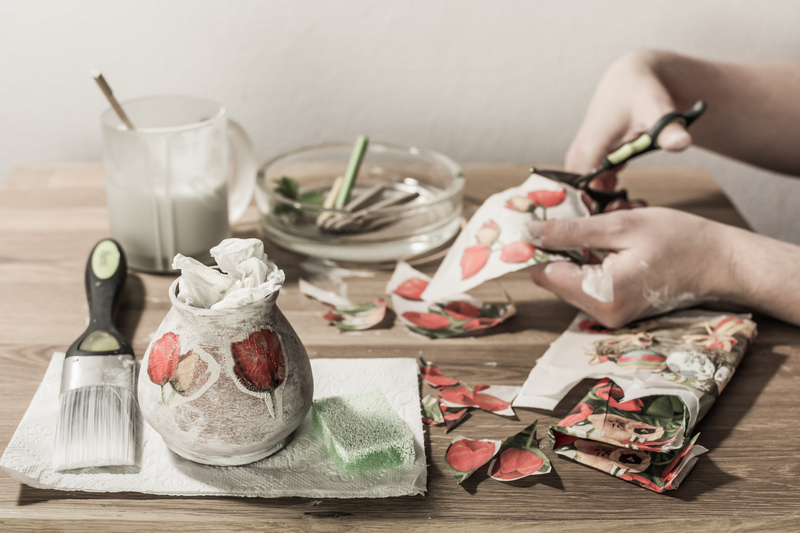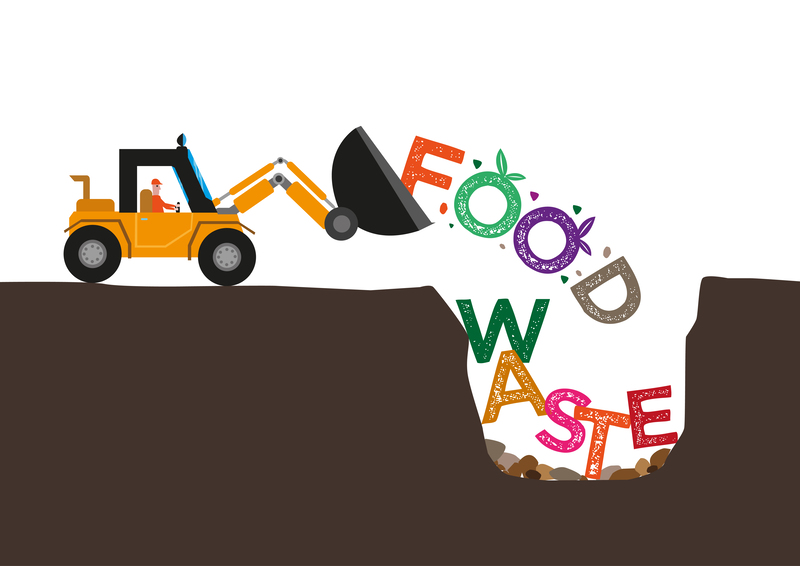Reclaim Your Space: The Therapeutic Benefits of De-cluttering
Ever walked into a room overflowing with possessions and felt your shoulders tense up? You're not alone. Many of us underestimate the emotional weight of clutter, but discovering the therapeutic benefits of de-cluttering can be truly life-changing. If your goal is to reclaim your space, find peace, and invite new energy into your life, it's time to learn why tidying up is more than just a chores--it's a pathway to well-being.
Why Clutter Affects Our Well-being
Clutter isn't just physical; it impacts us emotionally and mentally too. Our environments mirror our minds. Chronic disorganization leads to stress, anxiety, and even feelings of helplessness or depression. Recognizing the profound influence of your surroundings is the first step to reclaiming both your space and your mental health.
The Science Behind Clutter and Stress
Research consistently links cluttered environments to increased cortisol levels, the body's primary stress hormone. According to a study published in the Personality and Social Psychology Bulletin, women who described their homes as "cluttered" were more likely to experience fatigue and depression. Messy spaces trigger sensory overload, distract our focus, and sap our productivity.
- Visual chaos demands attention and keeps the mind in a constant state of alertness.
- Disorganization makes it difficult to relax or concentrate.
- Clutter can even negatively impact sleep quality by preventing full relaxation.

The Emotional and Cognitive Rewards of De-cluttering
Decluttering isn't just about getting rid of stuff--it's about making space for better things, both physically and mentally. Here are the core therapeutic benefits of de-cluttering:
1. Reduced Stress and Anxiety
Order on the outside translates to calmness on the inside. As you begin to declutter your surroundings, you'll notice a sense of relief emerge. Clearing out unused items eliminates visual distractions, which helps the mind relax and reduces overstimulation. This leads to lower stress levels and improved emotional well-being.
2. Enhanced Focus and Productivity
Clutter competes for our attention. A tidy, organized environment improves mental clarity, allowing you to focus better on tasks and goals. Streamlined spaces minimize time spent searching for items, enabling more productive routines and work efficiency.
3. Increased Energy and Motivation
Physical space and mental space are deeply intertwined. Letting go of "stuff" often leads to a surge of fresh energy, as the act of decluttering breaks the ties to stagnant or negative emotions. Many people report feeling motivated and inspired after removing unnecessary clutter from their homes or workspaces.
4. Improved Mood and Well-being
Reclaiming your space has direct, uplifting effects on the psyche. An orderly environment promotes a sense of accomplishment and self-efficacy, while decluttering also paves the way for healthier, more positive habits to develop.
5. Better Sleep Quality
Did you know that the state of your bedroom can affect how well you sleep? According to the National Sleep Foundation, people with clean, clutter-free bedrooms are more likely to enjoy restful, high-quality sleep. In this way, decluttering your space is a valuable act of self-care.
Decluttering as Self-Care: The Mind-Body Connection
Decluttering is a restorative process--an act of self-love. Each item you let go of represents a choice to prioritize your peace and happiness. This mindful, intentional approach amplifies the therapeutic benefits of reclaiming your living space.
- Mindful sorting encourages being present in the moment.
- Letting go can bring closure to past chapters, inviting healing.
- Orderly surroundings foster positive energy and optimism.
Physical Health Benefits
The perks of de-cluttering aren't just psychological. Regular cleaning and reorganization minimize dust, mold, and allergens, leading to a healthier living environment. A tidy space is safer, too--decluttering removes the risk of trips, slips, and accidental injury caused by excess belongings.
The Relationship Between Clutter and Emotional Baggage
Clutter often goes hand-in-hand with unresolved emotions. Items from the past may carry heavy associations--guilt, sadness, or nostalgia--which weigh us down. The process of decluttering your home and mind gives you an opportunity to acknowledge, process, and release these emotional burdens.
- Sentimental clutter: Items tied to memories can keep us stuck in the past.
- Guilt-inducing clutter: Gifts we don't use, but feel bad discarding.
- Aspirational clutter: Things we keep in the hope we'll use them "someday".
Sorting through such possessions and deciding what truly adds value helps us let go of the past and embrace the present. It's not just about the objects, but the emotions they represent--and the freedom that comes from releasing them.
Simple Strategies to Start Reclaiming Your Space
Tackling a cluttered environment may seem daunting, but the journey towards therapeutic de-cluttering can be broken down into manageable and uplifting steps. Here's how to get started:
1. Make a Decluttering Plan
Decide which rooms or areas need the most attention. Make a list and commit to a specific tackle order. Starting small--like a drawer or a shelf--can build momentum.
2. The Four-Box Method
Use this tried-and-tested technique:
- Keep: Only what you use, need, or love.
- Donate: Pass on items in good condition to charity or friends.
- Recycle: Responsibly dispose of paper, plastics, and electronics.
- Trash: For irreparable or unusable items.
3. Ask yourself these Questions
- Does this item serve a purpose?
- When was the last time I used it?
- Does it make me happy or is it simply taking up space?
- Would I buy this again today?
4. Set a Timer
Start with just 10-15 minutes a day. Little by little, those minutes add up, making de-cluttering a habit rather than a massive project.
5. Celebrate Small Wins
Every surface cleared and every bag donated is a victory. Celebrate your accomplishments to reinforce positive feelings and maintain momentum.
The Ongoing Practice of Maintaining Clutter-Free Spaces
Decluttering isn't a one-time event. The real magic lies in cultivating mindful habits that prevent future chaos.
- Practice the "one in, one out" rule for purchases.
- Assign everything a designated place in your home.
- Declutter seasonally to keep things fresh and manageable.
Staying organized supports ongoing mental and emotional well-being, empowers decision-making, and makes day-to-day living far more enjoyable. The continual process of reclaiming your space becomes a recurring form of self-care.
How Decluttering Can Enhance Other Areas of Life
When you make room in your home, you often find yourself making room in your life for new experiences, relationships, and opportunities. Becoming more intentional about your possessions often mirrors shifts in:
- Time management: You become less encumbered by disorganization, freeing up time for important activities.
- Financial health: You think twice before purchasing, reducing impulse buys and saving money.
- Relationships: Clearer spaces lead to more hospitable environments and improved interactions.
- Personal growth: Letting go of the old creates space for new ideas, hobbies, and self-improvement.
Decluttering and Minimalism: Not Just a Design Trend
Many people associate the concept of minimalism with stark, empty rooms. However, minimalist living isn't about deprivation--it's about being intentional with what you surround yourself with. By decluttering your environment, you create breathing room not just in your home, but in your mind and heart as well.
Minimalism encourages you to invest only in what adds value, promoting sustainability, gratitude, and contentment. Living with less helps reclaim your space and focus your energy where it truly matters.
When to Seek Professional Help for Clutter
Sometimes, clutter stems from deeper issues such as chronic disorganization, hoarding disorder, or mental health concerns like depression and anxiety. If you feel overwhelmed or unable to tackle clutter alone, it's okay to seek help. Professional organizers and therapists can provide support, resources, and strategies tailored to individual needs.

Inspiring Stories: Life After Decluttering
People from all walks of life have experienced transformation by reclaiming their space through decluttering:
- Jenna, a working mother: "After decluttering, mornings are calmer, I feel lighter, and my family spends more meaningful time together."
- Derek, a retiree: "Letting go of old possessions gave me emotional closure and made downsizing easier."
- Tina, a recent graduate: "Clearing clutter from my dorm made it easier to focus on studying--and made the whole space feel happier."
Conclusion: Transform Your Life by Reclaiming Your Space
Decluttering isn't just about having a neat home--it's about creating an environment where you can thrive. Whether you want less stress, more focus, or a greater sense of peace, the therapeutic benefits of decluttering are within your reach. It is an empowering journey, allowing you to reclaim your space, honor your well-being, and invite positivity into every aspect of your life.
Start today--one item, one shelf, one room at a time--and discover the transformative power of letting go. Your mind, body, and spirit will thank you.